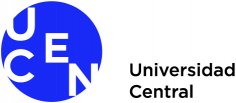
Martes 3 de Octubre de 2023
Daniel Sánchez Brkic from the Institute for Research and Postgraduate Studies, FAMEDSA, reviews the text written by Ximena Dávila /Humberto Maturana.

The book The Reflexive Revolution, written with Ximena Dávila, has the undeniable characteristics of Professor Maturana: a constant invitation to look, to look at ourselves, to reflect, and to move our paths. In this particular book (the last one written by Maturana) we can take a glimpse at that, sometimes directly and sometimes in a more subtle way.
We live in a world battered by multiple phenomena that show us how far we are from each other; from the processes experienced in the COVID-19 pandemic to earthquakes, changes in the social and natural ecosystem, and climatic and political alterations. These situations show us that we have reached the limit of our capacities.
This is a book that leads us to reflect on all our areas, in particular on the world of higher education and how we have shaped educational communities.
An educational community is first and foremost a social system, and as such, it is determined by its environment, its culture, and how its projects keep developing. A community of people who need to understand their ways of living.
Maturana dwells on a concept that seems central to his whole vision: "to let the other appear". This simple phrase probably encapsulates the greatest possible revolution. Maturana had already mentioned this view in earlier books when stressing the concept of love (the legitimate other in coexistence).
Letting the other appear supposes an act of humility, passion, commitment, and kindness. This is something that cultures seem to have forgotten because love is not profitable and does not sell newspapers. To love or to let the other appear is not easy: our nature, loaded with assumptions and prejudice, prevents this. Hence, Maturana invites us to make the most of this time of so much change and so many turning points and generate the most profound revolution, the one that allows us to realize where we are, how we are living, and how we can change.
Return to the center, make others visible (especially children and the elderly), and generate social and cultural spaces where people are accepted and valued. Creating spaces- of- being in our relationships leads to the emergence of the presence of the other. This presence that allows us to "let the other appear" is, in short, the great revolution, the revolution of that of living together.
Relating the topic of the book to higher education, we should recover the path for which it was intended: a community of people that shapes people. This world, external to their nature, captured by metrics, standards, and competencies seems to have left a blanket of murkiness in the educational system.
Today there is a call from all areas to recover the path. Focus on aspects such as coexistence, critical reasoning, collaboration, and the humanization of teaching. This is the path that H. Maturana invites us to take: to open our educational communities and allow the people who compose them to appear. To open the way and the flow to recognize and collaborate in the formative processes of students and teachers.
Finally, this path invites us to move, inhabit, and flow in harmony with the world (the worlds) we build, in coherence and attuned with our becoming, without exploiting it. I take care of the world because I admire its consistency. However, the ways of imposing and justifying new orders on this world destroy its harmony, coherence, and reality. To create a future of collaboration, we need to re-think and re-feel the education world, the individual and the family worlds, the worlds of work, the world of research, government programs, educational projects, media, constitutions, countries, and nations.